Our Ministerial Training College
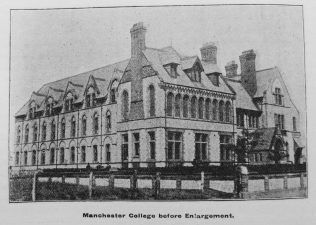
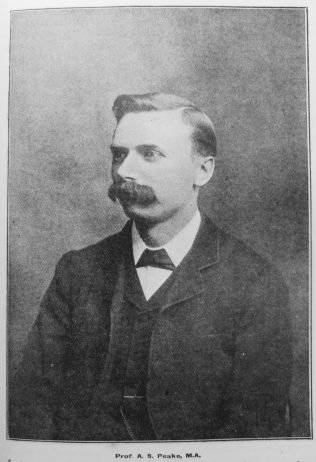
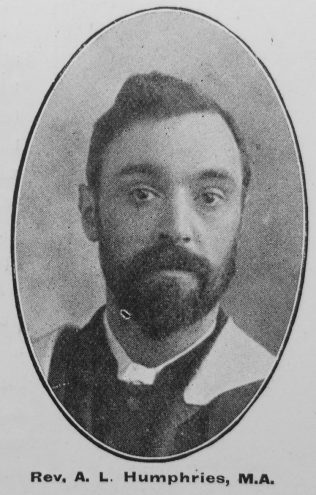

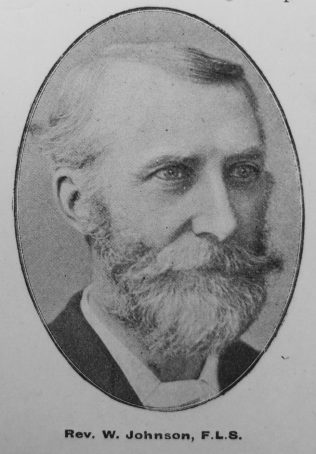
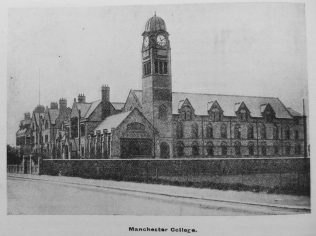
Transcription of Article in the Primitive Methodist Magazine by G. Parkin
EARLY in the history of our Church it was seen that an educated ministry was desirable. Without such a ministry we cannot meet the intellectual wants of our people; and the Church which ignores those wants, whether it be through ignorance, or cowardice, or apathy, loses many of its brightest sons and runs the risk of becoming extinct.
Seeing the importance of an educated ministry our Fathers did their best to provide one. They could not build a College, and had they been able and built one, they would have acted unwisely; for a College to be of real service must not be the creation of a moment but a growth, and its growth must be determined by the needs and resources of the Church to which it belongs.
Our College is an illustration of this principle, and, like other good institutions, its growth has been slow. Its germ is found in the Associations which sprang up early in various parts of the Connexion, and which aimed at the mental improvement of the ministers in the Districts to which they belonged, and especially of the junior ministers. The method generally adopted was to have sermons, speeches, and papers; and though it still continues yet it is not now the only method. The Association which first voiced the feeling for a College was that of the Sunderland District, of which the Rev. C.C. McKechnie was the leading spirit. In 1858, it decided to publish a magazine for the discussion of literary, theological and philosophical subjects, and the Christian Ambassador appeared. The following year the Rev. T. Southron read before that Association a paper on “A School for the Prophets,” which was published in the Ambassador two years later, and which led many to think that a College was within measurable distance of our people.
The first official step towards its realisation was taken in connection with the Jubilee of 1860, when a fund was raised for the following purposes:- The Missionary Fund, the General Chapel Fund, a high-class school for the sons of our ministers and people, and a College for ministerial candidates. It was also decided that in someway probationers should share in the benefits of the College; but unfortunately as much money was not raised as was deemed necessary, so the College was left in abeyance. Probationers were a little more fortunate than candidates, for they were instructed to correspond with senior ministers who should advise them respecting their studies and the various duties of their office. A list of books was also prescribed for them to read and on which they were examined at the end of probation. This arrangement was productive of good but did not last long.
The next step was taken shortly after the opening of the Jubilee School, York. The first governor, the Rev. John Petty, in his eagerness to advance the interests of the Connexion, tried to make it answer a double purpose – a school for youths and a college for ministerial candidates – so in 1867 he admitted a few young men who were candidates for our ministry. But this was only a temporary arrangement which soon came to an end.
In 1868 Sunderland College was opened, and then many felt that the great hope which they had cherished for years was realized. Twenty young men were admitted, and the Rev. W. Antliff, D.D., was appointed Principal and sole tutor. The curriculum was broad, for in addition to the ordinary English subjects it included theology, logic, rhetoric, moral science, church history, the Bible handbook by Dr. Angus, and Butler’s analogy. Besides the administrative and tutorial duties of his office, Dr. Antliff had to get a great deal of the money needed for working expenses, which was no easy task. The building also added to his difficulties, for it had only two rooms which could be used as studies, and six men had to be in one and fourteen in the other. It was soon found that important changes would have to be made, so the Leicester Conference of 1875 appointed a committee to consider the question. That committee met in Hull and recommended that a tutor should be appointed to assist Dr. Antliff; that the students’ term of residence should be lengthened to two years; and that another college should be procured or built. It was also thought that the additional college should be in Manchester, that the young men might attend Owens’ College. The Newcastle Conference of 1876 accepted those recommendations, with slight modifications, and appointed J. Lees Buckley, Esq., treasurer of the New College, and the Revs. J. Macpherson and J. Travis, secretaries. The Rev. T. Greenfield was subsequently made assistant to Dr. Antliff – an appointment which gave great satisfaction because of his fitness for the position and because it recognised his long and valuable services to our Church.
A site for the New College was secured in Alexandra Road, Manchester; and as the Conference of 1878 was held in that city arrangements were made for the memorial stones to be laid on the Conference Saturday by W. Beckworth, Esq., J.P., H. Lee, Esq., M.P., and J.S. Sutcliffe, Esq., J.P. The College was formally opened Oct. 22nd, 1881. Its exact cost cannot easily be stated, as many valuable articles of furniture were given, but on May 20th, 1881, there had been paid for the building and furniture exclusive of land, £8,039 18s., which sum was afterwards largely increased. The Rev. J. Macpherson was the first Principal and tutor, ten students were admitted, and the curriculum and examiners were the same as for Sunderland.
In 1884, When the Rev. W. Antliff, D.D., retired from a long and successful ministry, it was deemed advisable to sell the College at Sunderland, and to devote part of the proceeds to that at Manchester. The sum of £1,173 2s. 2d. was paid at the time, and went towards reducing the debt. £1,000 has been paid recently. The Rev. J. Macpherson soon followed Dr. Antliff into comparative retirement. Excessive labour and anxiety in connection with the College told at length on his iron constitution, and in 1890 the Rev. J. Wood, D.D., succeeded him as Principal, and he was retained as tutor.
Dr. Wood’s term of office was marked by important changes which were for the good of the Connexion. The number of students was increased to thirty, their stay in College was lengthened to two years, and the Rev. D. Neilson, B.D., was engaged to teach New Testament Greek. It was also thought that the time had come when, in the interests of the College, a permanent tutor should be appointed, and that he should be free from the labours and responsibilities of circuit life. Gifts, training and culture caused A.S. Peake, Esq., M.A., of Oxford, to be regarded as eminently suited for the position. He was a local preacher and conversant with the requirements of our Church. His college course had been unusually brilliant. He was a Fellow of Merton and a tutor of Mansfield, and through the efforts and generosity of W.P. Hartley, Esq., he was secured for Manchester. His advent to our College gave rise to changes in the curriculum. The Bible handbook disappeared, and he gave lectures on Biblical subjects in which the living thought of the day found expression.
The Rev. J. Watson, D.D., succeeded Dr. Wood as Principal, and during his official term the College was enlarged that it might accommodate sixty men; and W.P. Hartley, Esq., paid the entire cost, which was considerably over £11,000. The Connexion showed its appreciation of his generosity by presenting him with an oil painting of himself which is now in the College Library, near that of the Rev. J. Macpherson, – the one a tribute to the man that worked, the other to the man that gave. The increase in the students in the last year of Dr. Watson’s office, called for an increase in the staff; and the Conference of 1898, recognising his services as Principal and tutor, appointed him to one of the Manchester circuits, with a probationer as assistant, that he might still teach the subjects he had been teaching, viz., theology, logic, psychology and German (optional). His successor, the Rev. G. Parkin, took Hebrew, Classical Greek, New Testament Exegesis, and Pastoral Theology including Homileties ; and this arrangement worked well until the Doctor was compelled to retire through illness.
The Conference of 1902 thought that another man should be set apart as tutor, and appointed the Rev. A. L. Humphries, M.A. It also decided that, as the demand for men was still greater than the supply, as many should be taken into the College as possible. Accommodation was therefore made for 72, which is the number at present in College, last year there were 69. But 72 men will not meet the requirements of our Church. We need more than 40 a year, and with a three years’ course we should have at least 120 students. The number mentioned at the last Conference was 100 or 110, and Mr. Hartley generously offered to enlarge the College that it may accommodate that number, and to build a chapel in which the religious services of the students may be held. His offer made a profound impression on the Conference, and was regarded as most opportune, and thankfully accepted.
The growth in the premises and in the number of students has been accompanied by one in the curriculum not less important. This has been rendered necessary by the advance made in education during the last thirty years, and by the intellectual problems peculiar to this age. It now includes Systematic Theology, and Pastoral Theology, taught by the Principal, the Rev. W. Johnson, F.L.S., who has just succeeded Mr. Parkin in the office; Old Testament Introduction, Old Testament Exegesis, Old Testament Theology, New Testament Introduction, New Testament Theology, the History of Doctrine and Comparative Religion for third years’ men) taught by Professor Peake; New Testament Greek, New Testament Exegesis, Classical Greek, Logic, Psychology, and Latin (optional), taught by Professor Humphries; and Hebrew taught by the Rev. W.L. Wardle, B.D., who also corrects the English essays of the students.
An examination of this curriculum shows that emphasis is placed on Biblical subjects, and that is where it should be placed in a Theological College. The young men are set apart to preach the word, and to preach it efficiently they must know it. It is the instructed scribe who “bringeth forth out of his treasure things new and old.” Not the old apart from the new, or the ministry of such a man will be behind the times, having no message for the living struggling life of to-day; nor the new apart from the old, or it will lack the authority which comes from the accumulated wisdom and experience of the past; but the two in their necessary and complementary relations. Such a ministry will be marked by strength and freshness, and cause our people to feel that they are connected by spiritual bands with “the glorious company of the Apostles” and with all who have believed in Christ since their day, and that through them Christ is working out His benevolent purpose respecting the human race.
The College has also grown in the estimation of our people. Indeed, they never esteemed it as highly as they do now. They have seen how it has helped men to overcome faults which sprang from early surroundings and limited privileges; how it has widened their outlook; how it has improved their methods of study and made them loyal to truth; how it has fostered in them love to Christ and devotion to His service; and having seen the work of the College they esteem it. We had a fine illustration of this recently, in a letter from the Grimsby and Lincoln District, complaining that more young men were not sent from the College to labour in that District. The letter pleased us, for it bore out our contention that the College is growing in influence. We trust that it will continue to minister to the needs of our Church and to occupy a high place in its affections.
References
Primitive Methodist Magazine 1903/862





No Comments
Add a comment about this page